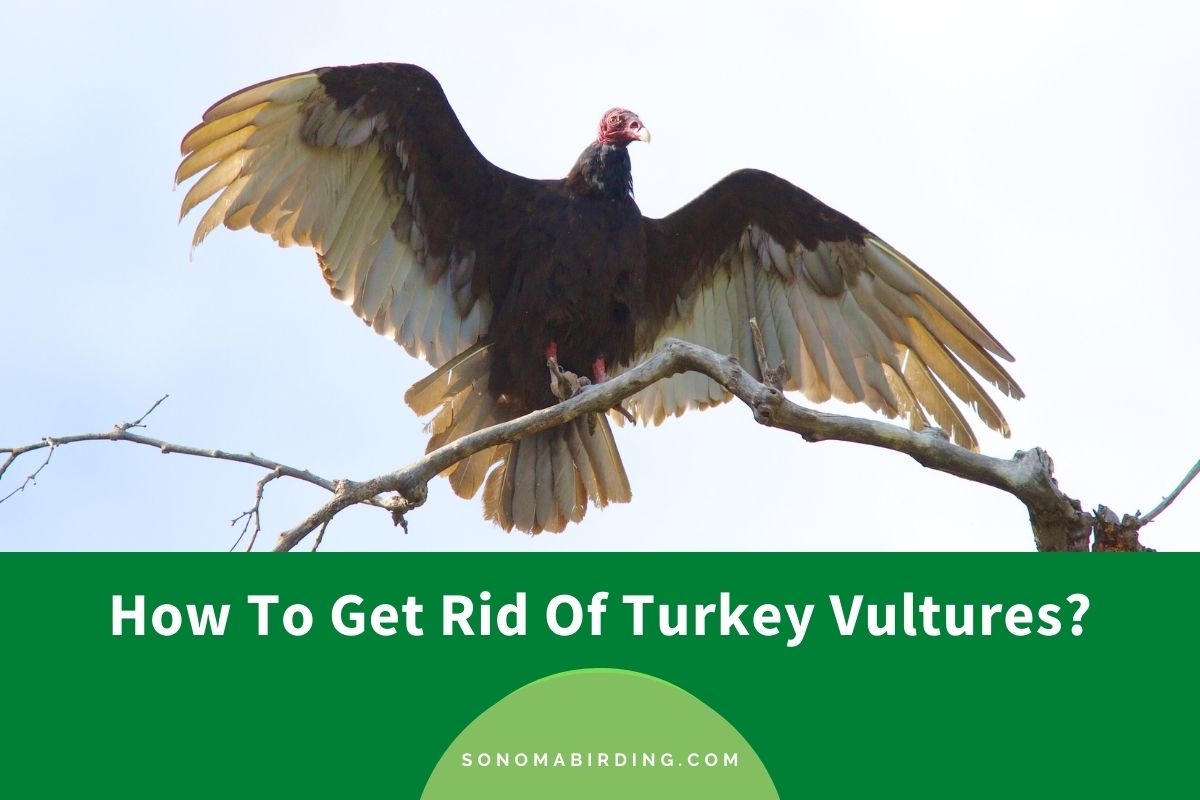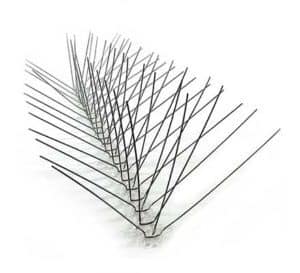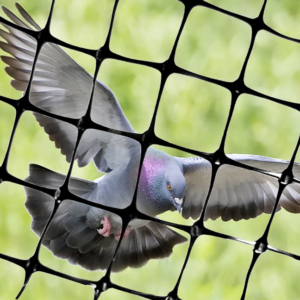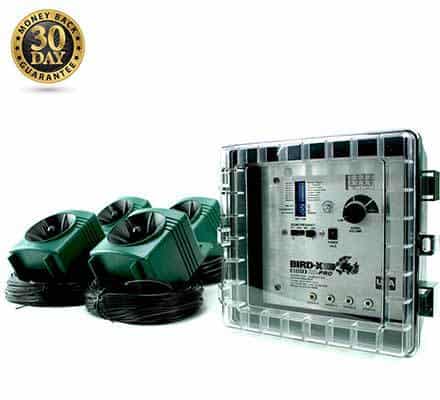Turkey vultures are large scavenger birds that feed on carrion. While they play an important role in the ecosystem by cleaning up dead animals, their presence can be a nuisance for homeowners. Turkey vultures tend to gather in large numbers, making noise and leaving droppings. They may also damage property in search of food. If turkey vultures have become an issue around your home, there are several effective ways to humanely deter them.
Why Get Rid of Turkey Vultures
Before discussing removal methods, it helps to understand why turkey vultures can be a problem:
-
Odor – Their diet of dead animals causes turkey vulture droppings to smell foul. They also regurgitate partially digested meat when threatened.
-
Noise – Groups of turkey vultures are loud with hisses grunts and squeals.
-
Damage – These large birds will rip shingles off roofs and deflate pool covers in search of food or nesting spots,
-
Health Risks – Their excrement can contain bacteria, viruses, and parasites. Accumulations present a health hazard.
-
Safety Issues – Turkey vultures roosting on power lines can cause power outages and fires. Collisions with aircraft are also a concern.
While removing turkey vultures may seem daunting, there are ways to make your property less appealing to them.
Remove Food Sources
The first line of defense is eliminating food sources. This includes:
-
Promptly disposing of animal carcasses. Bury dead livestock at least 2 feet deep with lime to deter digging scavengers.
-
Keeping trash cans tightly sealed. Meat scraps or smelly waste attract turkey vultures.
-
Washing away debris under trash cans regularly. This removes scents that draw in birds.
-
Placing trash bags containing meat in sealed containers until collection day.
Install Physical Barriers
Once food sources are removed, installing physical barriers can help block turkey vultures:
-
Netting – Cover patios, ponds, and gardens with netting to keep vultures from landing.
-
Spikes – Apply spike strips to ledges, signs, roofs, and other perching spots. The sharp points deter roosting.
-
Wires – String wires tightly above patios and decks. Birds avoid landing on unsteady surfaces.
-
Motion sprinklers – These devices spray water when triggered by movement, scaring off turkey vultures.
Use Scare Tactics
Scare and harassment tactics create an inhospitable environment for turkey vultures:
-
Predator decoys – Lifelike predator replicas like owls or hawks make turkey vultures feel unsafe. Place in different spots periodically.
-
Reflective deterrents – Hang shiny objects like pie pans, old CDs, or foil strips. The flashes disturb and disorient turkey vultures.
-
Sonic devices – Ultrasonic or propane cannons emit loud booms at random intervals to startle turkey vultures away.
-
Lasers – Random flashing laser light patterns every few minutes intimidate roosting turkey vultures.
-
Pyrotechnics – Using safe noisemakers like bird bangers and screamers to scare turkey vultures. Consult local laws first.
Modify Roosting Areas
Since turkey vultures favor high perches, modifying roost spots can force them to find new areas:
-
Remove tall trees or branches near buildings. This eliminates roosting and nesting options.
-
Install electric shock track systems on ledges or signs where turkey vultures gather. The mild shock makes them avoid the spot.
-
Place roost-deterrent spikes on rafters, roof peaks, and parapets. The sharp points make landing uncomfortable.
-
Hang effigies of dead vultures upside down. This scares away live birds, especially useful for deterring flocks.
Work With Professionals If Needed
For severe turkey vulture problems, don’t hesitate to contact professional wildlife control companies. They have access to specialized hazing tools and can perform exclusions. With persistence using humane methods, turkey vultures can be successfully encouraged to live elsewhere.

How to Scare Vultures Away
With the Migratory Bird Treaty Act, all vultures are safe in the United States and can’t be hurt by law. The vultures found in the U. S. look similar to vultures found in Europe, Asia, and Africa; however, they are of a different taxonomic family. While vultures in the U. S. cannot be harmed, humane control solutions are allowed for their removal from unwanted areas.
In order to keep buzzards away, there are several effective and humane ways to do so. All vulture control products manufactured by Bird-X, Inc. are legal, humane, green, and effective.
Physical barriers are the most effective way to keep birds off. Wherever applied; physical barriers eliminate the ability to land and perch. Stainless Steel Spikes install easily with Special Spike Adhesive, nails, screws or ties.

Bird nets creates a physical barrier. It works well to keep birds away because it keeps unwanted birds from going into places they aren’t supposed to be.

Covers up to 6 acres
The BroadBand PRO’s four speakers make sounds that people can hear and sounds that people can’t hear at the same time. These sounds confuse, disorient, and scare away pest birds, keeping them away.

The easy way to get rid of vultures without any harm
FAQ
How do you get turkey vultures to leave?
Why are vultures hanging around my house?
What are turkey vultures afraid of?
What smell do vultures hate?
How to get rid of turkey vultures on your roof?
To get rid of turkey vultures roosting on your roof, consider pruning the branches or cutting down old, dead trees where they are congregating. Another option is the use of buzzard roosting spikes, also known as pigeon spikes, which can be effective in preventing their roosting.
How do you stop a turkey vulture from flying?
Turn it on and watch as the vulture birds attempt to perch. The electric shock is not enough to hurt them, but it will shock them into flying off. Bird shock tape is the Best turkey vulture deterrent because it’s both effective and cost-effective. Buzzards come in large numbers, so you’ll need to protect a wide area.
How do I prevent turkey vultures from roosting on my property?
Physical barriers can play a significant role in preventing turkey vultures from roosting on your property. Bird spikes, available in plastic or stainless steel, can be installed on surfaces to deter birds from landing or roosting on them.
What is the best turkey vulture deterrent?
Bird shock tape is the Best turkey vulture deterrent because it’s both effective and cost-effective. Buzzards come in large numbers, so you’ll need to protect a wide area. A roll of bird shock tape can protect 50 feet worth of roosting space from destructive vultures roosting. 3. Install a motion-activated sprinkler system
How do you clean a turkey vulture nest?
To clean a turkey vulture nest, scrape out the nests, eggs, and droppings from under your eave or siding. You can use a long ladder with a brush attachment on a vacuum cleaner to clean eaves and soffits. Remember to wear protective eyewear when cleaning around the nest area as there is a risk of being hurt by falling debris.
How do you get rid of vultures in your home?
You can use reflective material to get rid of vultures hanging out in your home. The good thing about this turkey deterrent method is that it’s easy to DIY. You can crush balls of foil and hang them from the tops of tree branches like Christmas ornaments (although you can bet those birds won’t feel too merry about it).
